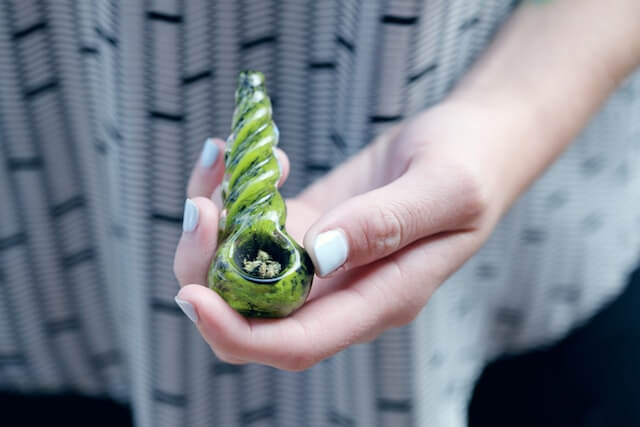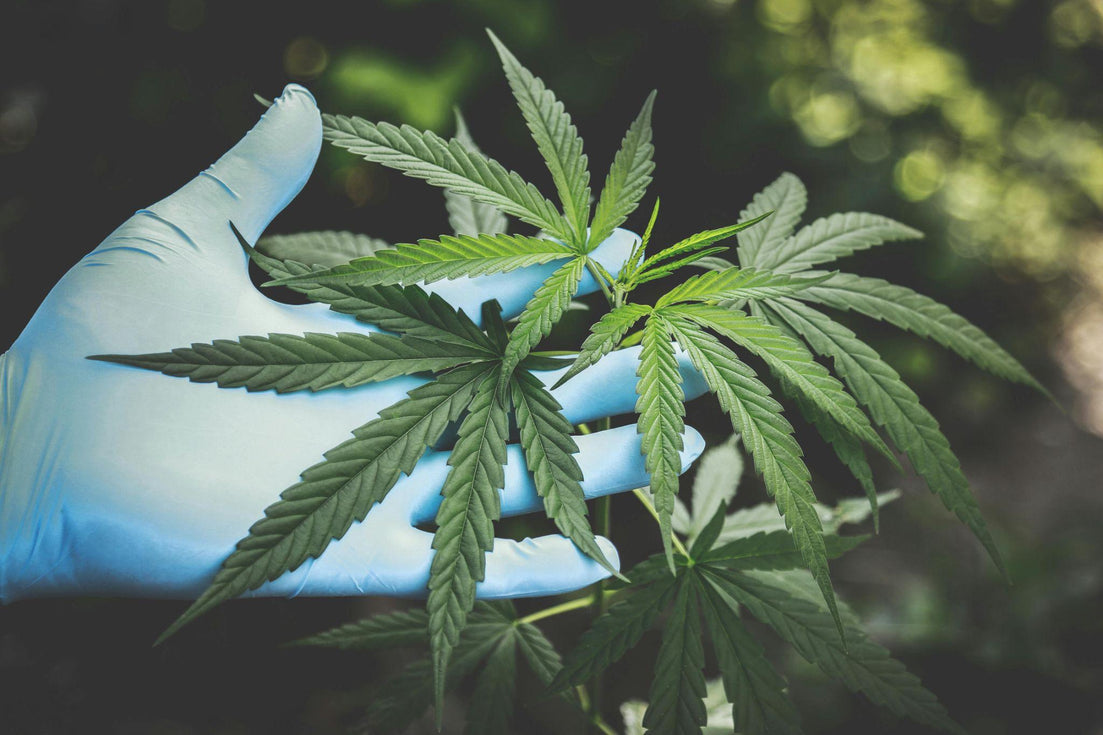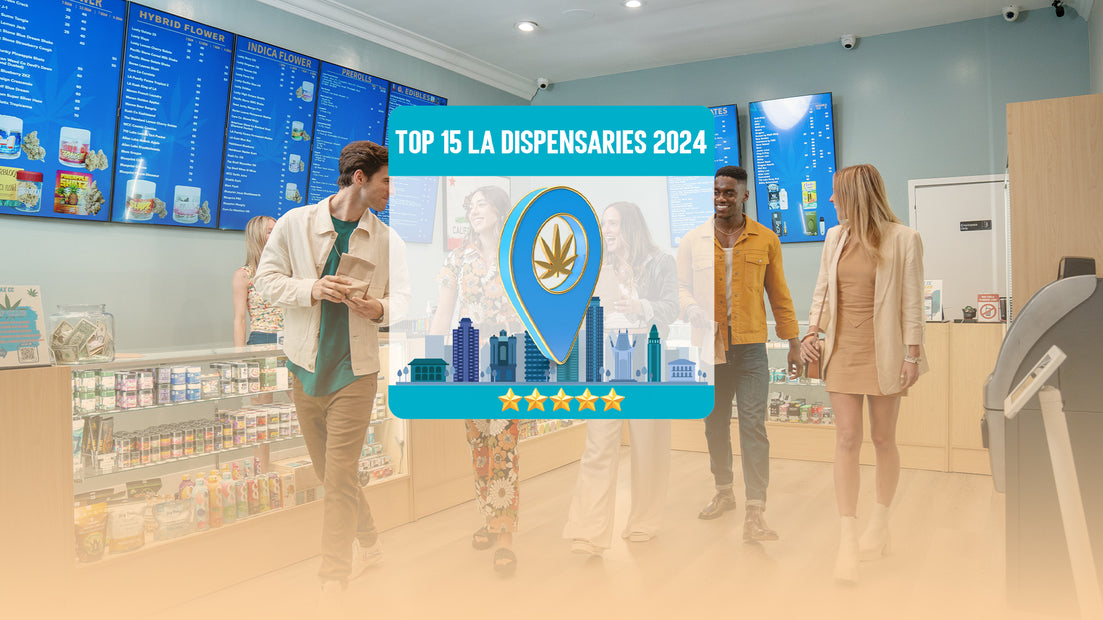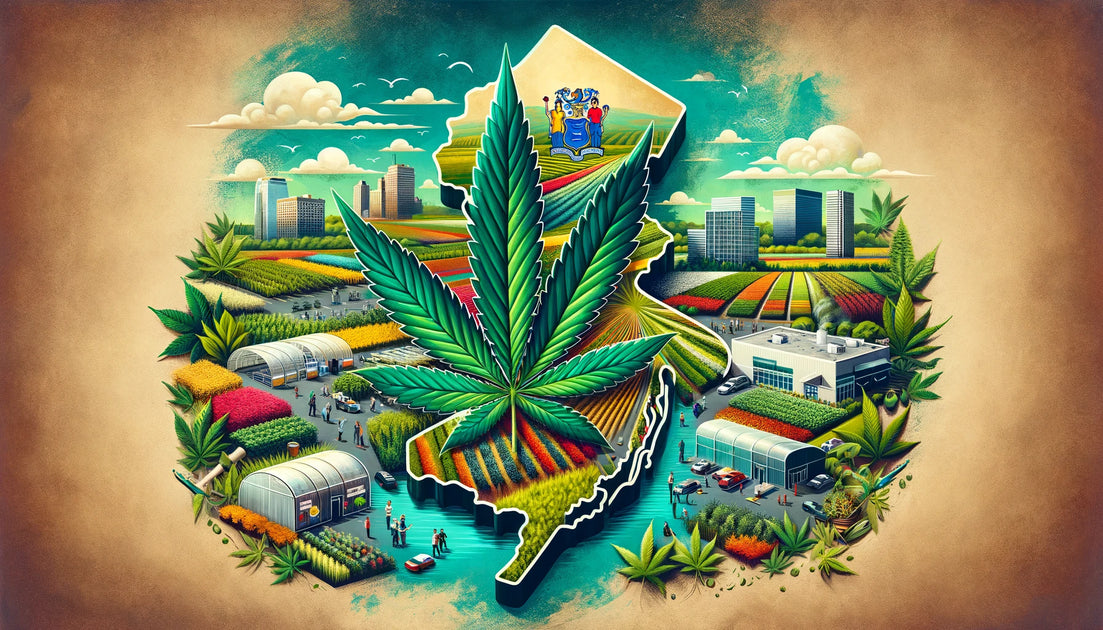Your cart is currently empty.

Does THCa get you high? That's the burning question on everyone's lips.
In fact, as more and more people explore the world of cannabis science, it seems to be their #1 point of curiosity...
Does THCa get you high?
The answer is not as clear-cut as one may assume. But this is what separates casual users from true cannabis connoisseurs. If you don’t know how THC works in its raw form (THCa), then understanding the full potential of your favorite green plant can seem elusive.
Diving into cannabis chemistry can be daunting, folks.
Take for instance a friend who recently told me that after consuming a strain with high levels of THCa... he didn't feel anything at all!
This left him questioning whether or not his bud was bunk or if there’s something about THCa that we’re missing entirely.
No wonder!
But truth time… Without diving deeper into what exactly is going on here…We just won’t know.Understanding THCa and Its Effects
Let's dive into the fascinating world of THCa, a non-intoxicating cannabinoid found in raw cannabis.
This compound undergoes alterations when exposed to heat or light, which is what eventually leads to THC.
The Chemical Structure of THCa
To understand how this transformation occurs, we first need to grasp the unique chemical structure of THCa.
In its natural state within fresh cannabis plants, this molecule has an extra carboxyl group attached - hence why it's referred as 'tetrahydrocannabinolic acid' (or simply 'THCA').
Differences between THCa and THC
You might be wondering what sets apart these two cannabinoids?
The answer lies in their psychoactive properties: while decarboxylation converts inactive THCA into intoxicating Delta 9 THC that gives you those familiar highs, unaltered THCA doesn't have any mind-altering effects.
A closer look at the Decarboxylation process
We've mentioned decarboxylation quite a few times already, but let's break down exactly what happens during this crucial conversion process: When heated up through smoking, vaping, or cooking methods like baking edibles - our previously non-active friend transforms itself from being just another component among many others present inside the marijuana plant towards becoming the main star on show responsible for all the fun parts associated with consuming weed. It sheds off its additional COOH group (the 'A' part) transforming itself into delta 9-tetrahydrocannabinol (aka your beloved THC).
We'll explore more about high percentage levels of THCA found in hemp products and whether they occur naturally or are artificially enhanced post-harvesting.
Decoding High Percentage of THCa in Hemp Products
Ever wondered why some hemp products flaunt high percentages of THCa?
You're not alone.
The answer lies in the intricate world of cannabinoids, where THC and its precursor, THCA coexist.
Natural vs Artificially Enhanced Levels Of Thca In Hemp
In their raw form, cannabis plants naturally produce a fair amount of THCA.
This non-psychoactive compound is transformed into intoxicating Delta 9 THC through heat exposure or decarboxylation.
Hence, higher levels could be indicative that your product contains more natural cannabinoid content than others on the market. But there's another side to this coin too.
Certain manufacturers artificially enhance these levels post-harvesting for various reasons like creating potent concentrates or marketing gimmicks aimed at attracting consumers looking for stronger effects.
Legal Considerations Surrounding High Percentage Thca Products
If you've ever been confused about whether it's legal to buy such products - join the club.
The legality surrounding high percentage THCA items can often seem as cloudy as smoke from a freshly lit joint. This is primarily due to varying interpretations across states regarding what constitutes 'marijuana' versus 'industrial hemp'.
Federal law stipulates that any Cannabis Sativa L plant containing less than 0.03% Delta 9 THC falls under industrial hemp classification which isn't subject to stringent regulations unlike marijuana.
However, with no explicit mention made around THCA, uncertainty prevails.
It's always wise, therefore, when purchasing such products online or over-the-counter, to stay informed about local laws governing consumption and possession.
The Process Of Decarboxylation
Decarboxylation, often referred to as "decarbing," is a chemical reaction that removes a carboxyl group and releases carbon dioxide (CO2).
This process activates the THC in cannabis by heating it.
Popular ways to decarb THCa:
- Oven method: Preheat your oven to 220-245 degrees Fahrenheit. Divide the cannabis into tiny portions and lay them on a tray which is suitable for use in an oven. Bake for about 30-45 minutes, or until the material has turned brownish-green.
- Microwave method: A less common but quicker way of decarbing is using a microwave. Set it at around half power or lower and heat for two-minute intervals stirring between each interval until you see browning begin. Here's how.
- Sous-vide technique: If precision matters most, consider sous vide. This cooking technique uses temperature-controlled water baths which provide consistent results every time. Learn more here.
No matter what approach you choose; remember - patience pays off when trying not burn those precious cannabinoids away.
Besides just getting us high, did you know there are other reasons why we need this crucial step? We'll dive deeper into that next.
Evaluating the Intensity Of A THCa High
Ever wondered just how potent a high you can expect from consuming decarbed THCa?
The answer might surprise you.
In its raw form, THCa is non-intoxicating.
The relationship between temperature and conversion speed
But here's where things get interesting: The potency of your high hinges on factors like temperature during the heating process.
- A lower heat over an extended period tends to yield more THC,
- while higher temperatures for shorter times result in less conversion but quicker effects when consumed.
leading to intense highs akin to those experienced with traditional weed.
When it comes down to it, understanding this delicate dance between time and temperature could be key in tailoring your cannabis experience.
So next time you're experimenting with edibles or other heated forms of consumption, remember - slow and steady often wins the race.
Navigating Legality Around THCa Consumption
When it comes to substance regulation, things can get a bit murky.
This is especially true for substances like THCa, which fall into a legal gray area.
Interpretation & Implications of 2018 Farm Bill Regarding THCa
The passing of the 2018 Farm Bill brought about significant changes in how hemp and its derivatives are regulated in the U.S.
In essence, this legislation removed 'Hemp' from Schedule I controlled substance status if it contains less than 0.3% Delta9 THC on a dry weight basis.
Bear with me here; we're diving deep into legalese territory.
- Hemp: The bill defines Hemp as any part or derivative (including seeds) of Cannabis Sativa L plant containing no more than 0.3 percent delta9 THC on a dry weight basis.
- Dry Weight Basis: This refers to cannabis's total mass after all moisture has been evaporated out - essentially what you'd weigh when purchasing at a dispensary.
But where does that leave us regarding THCa?
Well, technically speaking...
THCA isn't explicitly mentioned under federal law.
This means there's room for interpretation.
Some might argue that since THCA isn't psychoactive itself, it should be treated differently.
Others could point out that because heat transforms THCa into Delta9 THC, it falls within the same regulatory framework.
Either way, the ambiguity leaves consumers navigating tricky waters.
Remember, always consult local laws before consuming products high in cannabinoids such as THCa.
Stay informed, folks.
FAQs in Relation to Does Thca Get You High
What type of high is THCA?
THCA itself does not produce a high. However, when heated (decarboxylated), it converts into THC, which can induce an intoxicating effect similar to traditional cannabis.
What percent of THCA is high?
The percentage of THCA doesn't directly correlate with the intensity of a high. It's the decarboxylation process that turns THCA into psychoactive THC and determines potency.
How does THCA affect the brain?
In its raw form, THCA has no psychoactive effects on the brain. Only after being converted to THC through heat does it interact with cannabinoid receptors in our brains.
What are the benefits of dabbing THCA?
Dabbing provides immediate delivery and potent effects due to rapid conversion from THCA to THC during heating. This method may offer potential therapeutic benefits such as pain relief or anti-inflammatory properties.
Conclusion
So, we've journeyed deep into the world of cannabis science and unraveled some fascinating truths about THCa.
The precursor to THC, it won't get you high in its raw state but when heated up unlocks the potential for those intoxicating effects.
Hemp products boasting high percentages of THCa? It could be natural or artificially enhanced post-harvesting. The implications for consumers are far-reaching under current legal frameworks.
We learned that heat exposure is what transforms inactive THCa into mind-altering Delta 9 THC through a process called decarboxylation. And yes, temperature plays a significant role in how quickly this conversion happens!
And does thca get you high?
Absolutely! But only when properly heated up to become THC. So no worries if your friend didn't feel anything after consuming a strain with high levels of unheated THCa - it wasn't bunk weed after all!
But remember...
Navigating legality around ThcA consumption can be tricky due to complex legislation.
It might not technically fall under 'hemp' as per federal law.
If you're intrigued by all things cannabis-related and want more insights on topics like CBD, Delta 8, Delta 9 and beyond...
Why wait?
Dive deeper into our website, where we explore everything from strains and their unique properties to laws surrounding use. We'll help guide your path towards becoming a true cannabis connoisseur!



